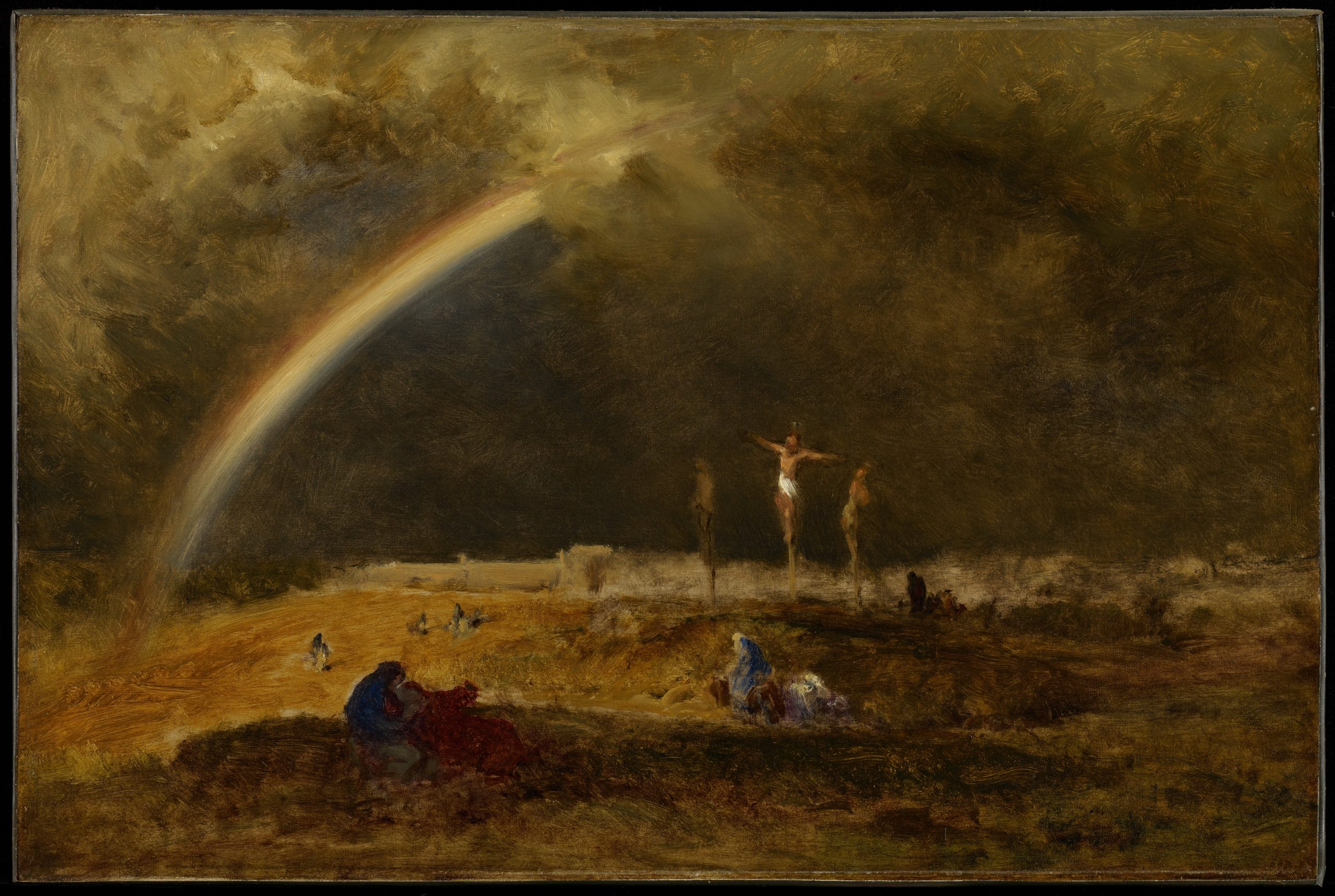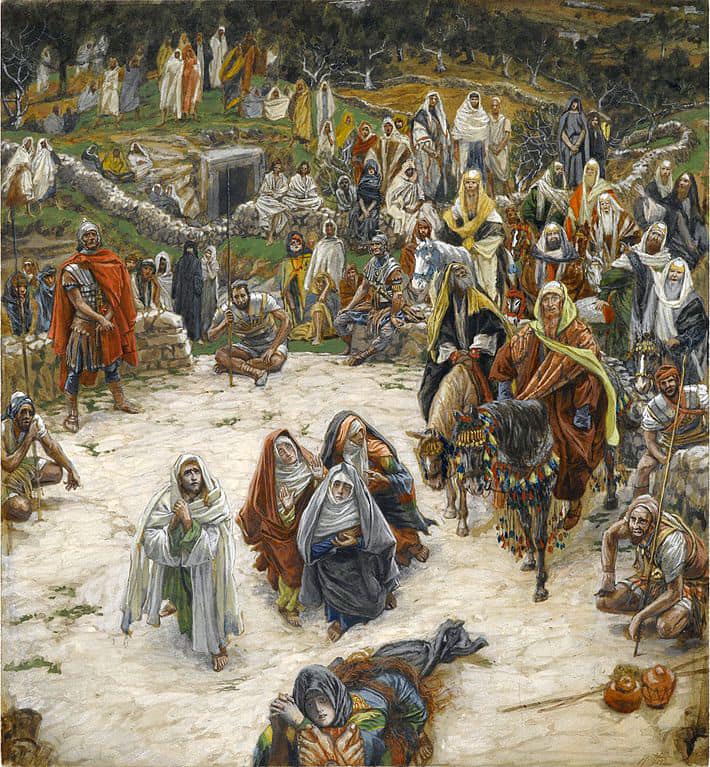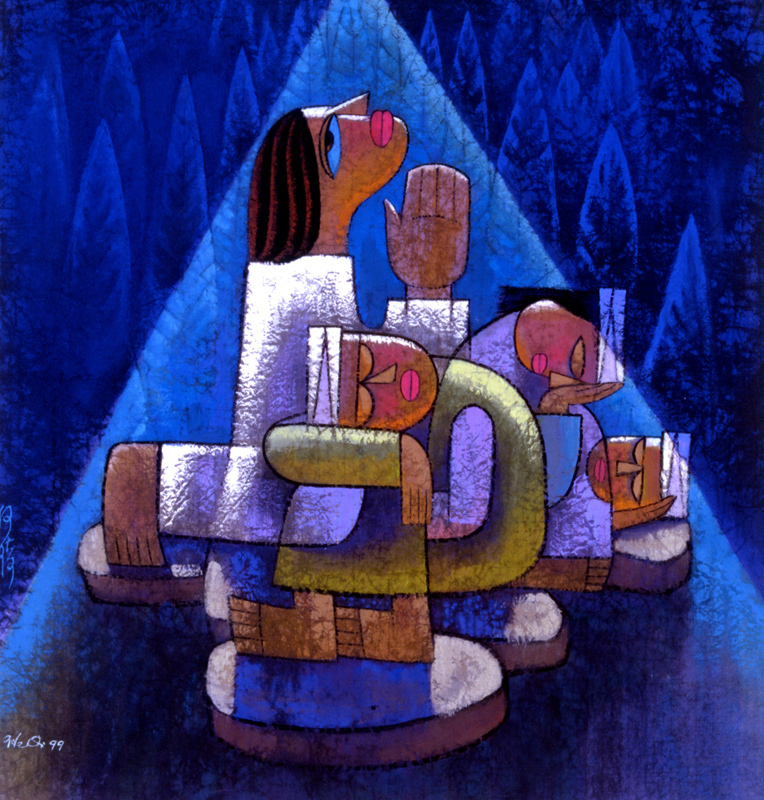Do you see dead people?
Back in 1999, the haunting movie The Sixth Sense was released.
In it, a distressed young boy named Cole (played by Haley Joel Osment) talks to a child psychologist, Malcolm (played by Bruce Willis).
Cole: I see dead people.
Malcolm: In your dreams?
Cole shakes his head.
Malcolm: While you’re awake?
Cole nods.
Malcolm: Dead people like, in graves and coffins?
Cole: Walking around like regular people. They don’t see each other. They only see what they want to see. They don’t know they’re dead.
Malcolm: How often do you see them?
Cole: All the time. They’re everywhere.
Several times the Gospels share moments when Jesus visibly and audibly laments at what he sees. He too is disturbed. All around him are people walking, walking just like regular people, only seeing what they want to see. Not knowing that they are dead in their sins.
Luke’s Gospel records one such occasion, when Jesus becomes distressed as he sees the city of Jerusalem on the horizon. Jesus’ words reveal he sees a city doomed.
And when he drew near and saw the city, he wept over it, saying, “Would that you, even you, had known on this day the things that make for peace! But now they are hidden from your eyes. For the days will come upon you, when your enemies will set up a barricade around you and surround you and hem you in on every side and tear you down to the ground, you and your children within you. And they will not leave one stone upon another in you, because you did not know the time of your visitation.” (Luke 19:41–44)
Jesus’ weeping and the heavy words in Luke 19 as he declared all that Jerusalem was meant to be, the peace and hope it represented, it was not. Anyone hearing Jesus’ pronouncement of impending destruction should have been alarmed, since Jerusalem had already been destroyed once before due to her sin. Nearly 600 years before Jesus’ arrival, Jerusalem was overtaken by Babylon and its precious temple burned to the ground. Jesus’ description of Jerusalem’s impending future uses imagery from that previous destruction (see Psalm 137, which laments Babylon’s cruelty as they destroyed Jerusalem).
Jesus sees the city God had brought back from the ashes of its first destruction, rebuilt with the temple, with people returned, all as he had promised (e.g. Jeremiah 29:10–14). Looming on the skyline, Jesus sees the city God promised he would bring his king to, the king who would establish peace for both that city and the nations:
Rejoice greatly, O daughter of Zion!
Shout aloud, O daughter of Jerusalem!
Behold, your king is coming to you;
righteous and having salvation is he,
humble and mounted on a donkey,
on a colt, the foal of a donkey.
I will cut off the chariot from Ephraim
and the war horse from Jerusalem;
and the battle bow shall be cut off,
and he shall speak peace to the nations;
his rule shall be from sea to sea,
and from the River to the ends of the earth. (Zecheriah 9:9–10)
Jesus’ entry into Jerusalem is this moment. Luke 19 records Jesus coming down the Mount of Olives towards the city of Jerusalem on a donkey (vv 29–40). With his choice of transport, Jesus makes it clear that he is the long-awaited promised king.
At the time, many of his disciples seem to understand. They lay garments down, wave palm leaves, and sing from psalms that praise God’s king (vv 35–38; Ps 118). From one point of view this is a triumphant moment. From another, it is anti-climactic. Yes, a crowd of disciples rejoice loudly at the entrance of the king, but relative to the expectation bound up with this famous city of God, there is an eerie quietness. All is silent—except for the Pharisees demanding the Jesus parade must be stopped (v 39). Upon arrival at the pinnacle of Jerusalem, the temple, no one welcomes God’s king.
This is the moment!
But simultaneously, tragically anti-climactic!
Jerusalem, the city set up for peace, under the gravity of her sin has squandered her second chance and does not recognise Jesus her king when he enters.
This moment of anti-climax in Jerusalem reflects the anti-climax of humanity in the biblical story. Humanity – that’s all of us – is deeply stuck in sin and death. We humans don’t see our sin. We don’t think we’re sinful. We don’t really think anything is going to happen to us before God. Like Jerusalem past and further past, humanity faces the judgement of God.
This is a huge problem, but we’re walking around thinking everything is normal. We are walking around dead.
Since The Sixth Sense was released 25 years ago, I think it’s okay to reveal the twist. The psychologist Malcolm thinks he is dealing with a young boy traumatised by seeing dead people who speak to him, and he is right, but in the end, we also learn that all along Malcolm has been walking around like a regular person, only seeing what he wants to see, not knowing he is dead!
We don’t see it either.
Only by God’s grace do we develop a ‘sixth sense’. We need God to reveal and make known to us that we’ve been dead in our sins and need to be saved by Christ’s work.
Ephesians 2:1–5 says:
And you were dead in the trespasses and sins in which you once walked, following the course of this world, following the prince of the power of the air, the spirit that is now at work in the sons of disobedience—among whom we all once lived in the passions of our flesh, carrying out the desires of the body and the mind, and were by nature children of wrath, like the rest of mankind. But God, being rich in mercy, because of the great love with which he loved us, even when we were dead in our trespasses, made us alive together with Christ—by grace you have been saved.
Only Luke’s Gospel includes Jesus’ distress and grief as he sees Jerusalem. Jesus saw people as they truly are, and this broke his heart. Jerusalem was a city full of people so dead and numb they missed the day of God’s visitation that would bring them peace.
At the end of Luke’s Gospel, after Jesus’ death and resurrection, Luke tells us that Jesus stands again in the city. There he says to his disciples, “Peace be with you” (Luke 24:36). Explaining his death and resurrection, he commissions them to proclaim this gospel of the kingdom to Jerusalem, to the rest of the world, preaching God’s forgiveness of sins (Luke 24:45–47).
As we approach Easter, reflect on Jesus approaching Jerusalem and weeping over it.
Do you have a “sixth sense“?
- Who do you see?
- How do you see them?
- Have they become regular-looking to you?
- Do you see them from an earthly point of view?
- Do you see them as Jesus sees them?
Grief, empathy and compassion will flow from us, as more and more, we see people as Jesus saw them.
Our pray for individuals and our city and our motivation to proclaim the gospel expands as we see people the way Jesus did.
- What can you do to proclaim the peace of forgiveness and grace this Easter?



